Finding a software developer can be easy. There are thousands of “ninjas”, “rockstars”, and “gurus” ready to take on the next challenge. However, finding the right software developer for your SaaS startup could become a real challenge.
In this article we won’t focus on job boards, like indeed.com, monster.com or LinkedIn Jobs. Those are pretty basic sources. Instead, we want to share some fresh ideas and alternative strategies for finding software engineers for your SaaS startup.
So, here is our ultimate list of tips and tricks on how to snatch the right tech talent.
If you want to hire a freelance developer
Working with a freelance developer has its benefits as well as drawbacks. The latter include undependability (freelancers tend to switch projects often) and security issues (there are some situations when third-party contractors can reuse your source code or even sell some parts of your intellectual property to other companies.)
Yet, in some cases, hiring an independent contractor (freelancer) might be a reasonable solution for a startup. Some of the most popular platforms where you can find thousands of freelance developers are:
- UpWork
- Toptal
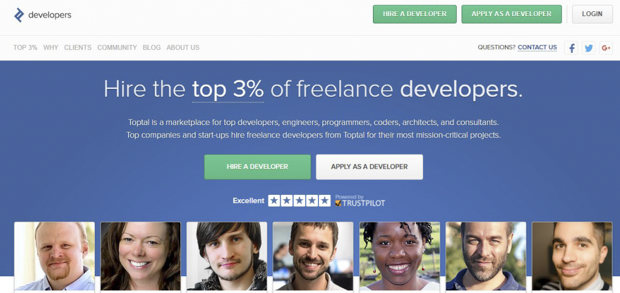
- Freelancer.com
- PeoplePerHour
These freelance marketplaces allow you to post a job, set requirements for your candidates, and your budget expectations. Then you can simply sit back and relax – the bids will start to flow. Of course, this is a perfect scenario. The problem is, along with several worthy offers you will need to deal with dozens of irrelevant and simply generic replies from less professional and often less skilled freelance developers. That makes it harder to sort out the best candidates.
A good practice is to ask thea candidate to start his/her application with a certain password. It makes filtering out the generic bids easier. One more expert advice is to conduct personal interview with a couple of the best candidates or post another job as a test task (with a fixed cost) before awarding the job.
If you are looking for a full-time developer
Taking into account the risks associated with freelance developers, many startups, including Chanty, prefer hiring full-time engineers in-house.
Just like platforms specializing in freelance developers, there are some online resources focusing primarily on a certain technology. For example:
https://jobs.rubynow.com/ – a job board for Ruby developers
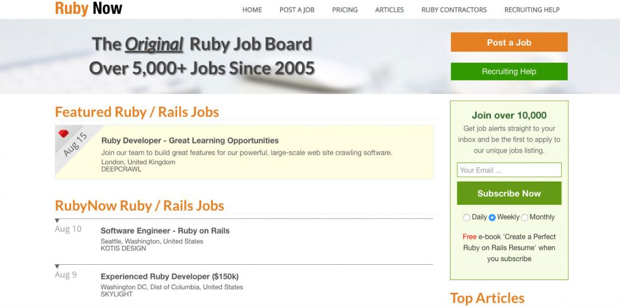
- https://www.python.org/jobs/ – Python job board
Moreover, there is a number of developer communities featuring job posting options:
- https://www.stackoverflowbusiness.com/talent – an online developer community that boasts 50 million monthly visitors.
Platforms like Dice, IT Job Pro, and TechCareers are also niche resources, connecting employers directly to the relevant and qualified tech professionals.
Another powerful online resource dedicated to IT world is AngelList. Serving as a database of the existing tech startups, the website also has a job posting feature. According to SimilarWeb, the platform has over 9 million monthly visitors. The information provided by the resource itself states that there are currently “1,220,686 active candidates, including 353,856 developers.” And the number of candidates is growing rapidly.
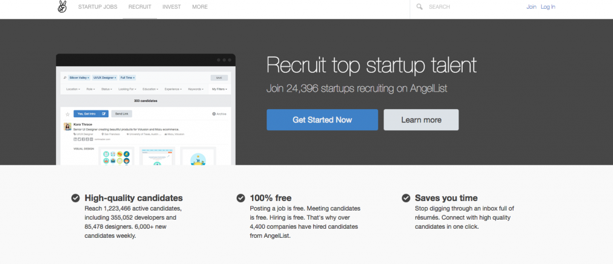
IT-related news portals represent another less-known opportunity for a SaaS startup to hire a software programmer. Websites like Mashable and TechCrunch also feature dedicated job boards.
The power of social networks can also come in handy when looking for a software developer. First of all, you can post a vacancy on your startup page on Facebook or Twitter. If you have a significant number of loyal followers your chances for success are pretty high. However, you can also use relevant hashtags to reach the developers outside of your audience.
There are some Twitter accounts that scrape the web job postings from other accounts based on the used tags and retweet the relevant posts. Other Twitter accounts are simply aggregating tech job postings from different sources, for example, https://twitter.com/VaTechJobs or, https://twitter.com/TechJobs_NYC.
Online communities and forums, like Hacker News and Reddit, are also very popular among software engineers. So you can reach out to the potential candidates by placing your job posting in the relevant threads.
Make sure to post current job openings in Jobs/Careers section on your website. Some developers might use advanced search queries (inurl:job or inurl:careers) to look for a job posting on your website.
If you consider hiring a remote developer
Just like digital nomads, remote workers are a growing trend among IT specialists. Demand breeds supply, which is why there are many websites tailored specifically to remote work opportunities. Some of the most prominent examples are:
- https://remoteok.io/
- https://weworkremotely.com/
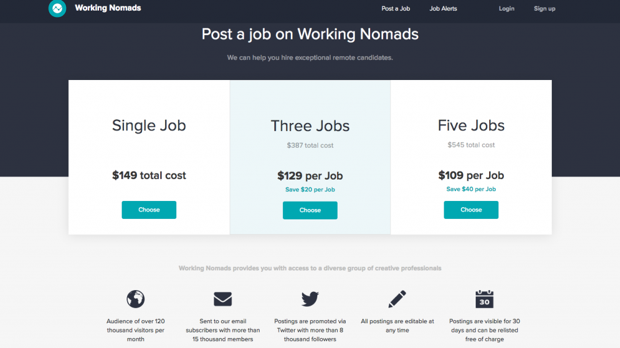
If you are posting your job opening on your website or use any of the job boards mentioned above, it might be useful to include keywords, such as “remote” or “remote ok,” to make sure your post will appear in the Google search.
If you are ready to hire software developers overseas
If you are ready to consider relocating the right candidate from abroad, you should take into account that candidates interested in such opportunity might use relevant Google queries, such as “international jobs”, “international careers” and, “overseas jobs” to look for matching positions.
International careers are gaining popularity among IT specialists. If you want to hire a digital nomad or welcome a remote developer, take a closer look at the platforms like https://jobbatical.com/ and http://www.escapethecity.org/.
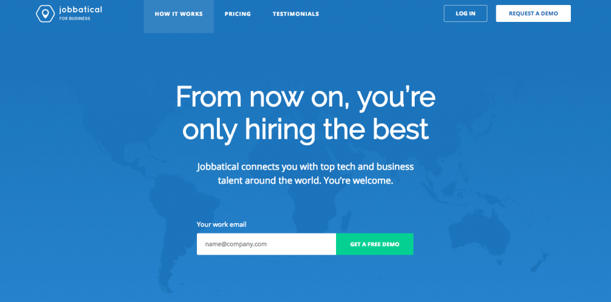
There are web agencies that help to connect the engineers willing to relocate directly to the employers offering such opportunity, for example https://relocate.me (currently working only across certain locations). Other staffing agencies specialize solely on IT talent relocation within a number of European countries.
Hiring a software developer when your budget is limited
If you are a young startup, you should pay great attention to the way you spend your funds. If your resources are scarce, consider hiring an intern. Many of the websites listed above, such as AngelList, offer internship job posting options.
However, don’t expect your intern to lead the development process. In case you go for this option, you will still need a skilled team lead or senior engineer to look after the less-experienced engineers.
Harness the power of networking
You can never know for sure where you will meet your perfect candidate. Experience has proven that you can find a software developer outside of job boards as well. Especially if you are a young startup, it’s difficult to attract the right talent simply by posting a job opening.
A proven strategy is to meet with potential candidates in person, for example on hackathons, local meetups, conferences and startup gatherings and crash tests.
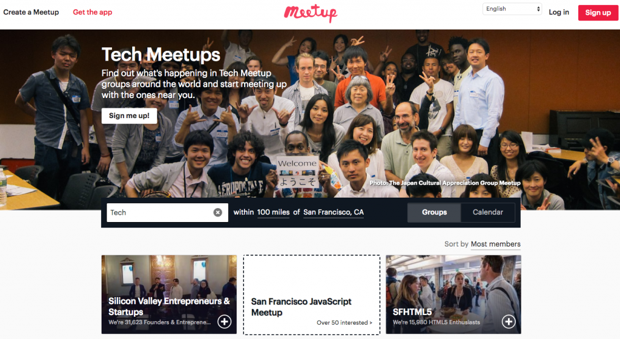
Attending or even sponsoring local developer events, including coding boot camps, can also be a great way to meet fresh talent and engage with the community directly. Developers often find these events stimulating and a good opportunity to showcase their skills. At such events, you can directly witness a candidate’s problem-solving and collaborative abilities in real-time, which can give you a much clearer picture of their capabilities than just reviewing a resume.
It’s also possible to find a web developer for your SaaS startup online: The right person might follow you on Twitter, or you can be in the same professional group on LinkedIn, Google+, or Facebook.
What if none of the options appeals to you and you want everything in one?
Any option other than hiring a software engineer full-time and on-site might have a number of pitfalls and risks you should take into account. As with freelance developers, or remote cooperation, your candidate might turn out to be not as perfect as it seemed at first. There is always a chance that your remote worker will simply vanish in the middle of the project, leaving you high and dry.
In case you still want to hire a software programmer for your startup outside of your location, but cannot afford relocation, and freelance is not an option due to the risks mentioned above, there is another suitable cooperation model. You can hire full-time software developers offshore.
Many offshore development companies offer flexible models that allow you to scale your team based on project needs. This provides startups with the benefit of both cost-effectiveness and access to high-quality talent from regions with a well-established tech industry, such as Eastern Europe, Southeast Asia, and South America. Furthermore, agencies often offer managed services, which can take care of administrative overhead, allowing you to focus on what matters most – developing your product.
There are many international agencies that offer such cooperation model, including Daxx. If you decide to partner with our offshore software development agency, we don’t simply find software developers for you, but also take care of all organizational issues, including his/her work space off-site, paperwork (contract, NDA, tax), salary package, and retention.
Tips from IT recruiters’ experience
- It is always easier to hire a person who is already looking for a job. Our experience shows that the position is most likely to be filled when the candidate is actively looking for a job, for example, applies for the position him/herself or posts his/her CV on relevant job boards.
- There is always a chance to “steal” a developer from his/her current employer, for instance, by connecting with the candidate in person or via social networks (usually, LinkedIn) and offering a job. But if the candidate is happy at his/her current position, the chances for re-hunting him/her are really low (unless you can offer a significantly higher rate or some other benefits).
- When posting a job opening, make sure to provide the relevant information on the project specifics and details about your company. This will automatically improve your credibility and help you stand out among thousands of other offerings. Include the project details, possible challenges as well as benefits you are offering, point out the approach and the process of candidate assessment, startup mission and values. Thus, you will eliminate the irrelevant applicants and save both your time and the time of your candidates by providing all the details upfront.
- If you are a young startup or a company the candidates aren’t familiar with, pay close attention to the benefits you are offering: Why should the candidate choose your startup over a large company? For example, as a small startup, you’ll give a developer the opportunity to take a lead role in the development of a live product – he or she will have a crucial role in the business, rather than being one of many coders at a larger company.
- Before you start looking for developers overseas, get familiar with the specifics of the local labour market. For example, Ukrainian developers are well-known for the high quality of their code, that is why they regularly get offers from dozens of other companies. In this case, if you make the candidate wait for your decision for too long, he/she can accept the competing offer.
Before you dive headfirst into the IT recruiting vortex, make sure to decide what kind of developers you are looking for. Choose the type of cooperation that will be most beneficial for your startup. You can later turn your freelance developer into a full-time remote team member, yet it doesn’t always work the other way around.
How did you find software developers for your startup? Share your success stories (or fails) in the comments.









Add comment